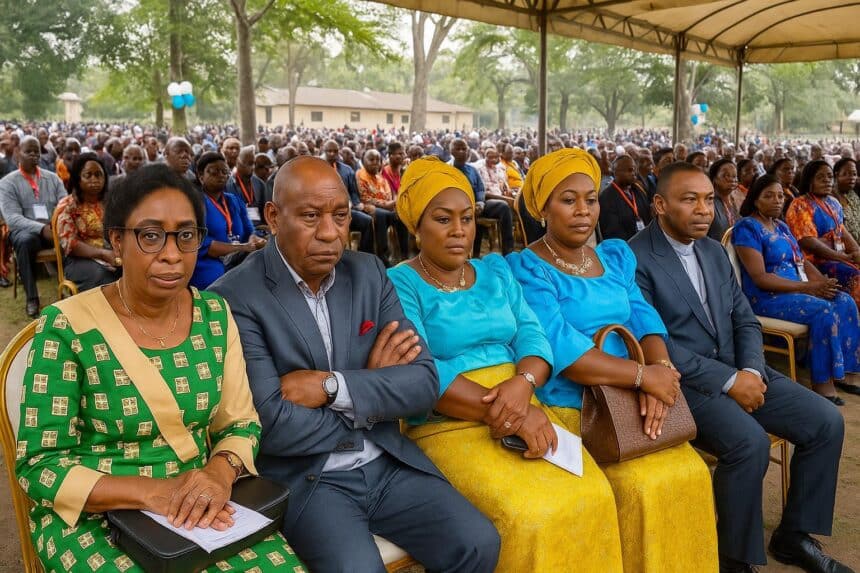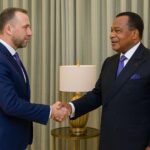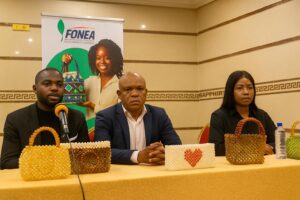A Strategic Synod in Brazzaville
Held from 10 to 14 July in the Mansimou district, the extraordinary synod of the Evangelical Church of Congo (EEC) unfolded under a climate of solemnity that simultaneously celebrated faith and addressed the administrative future of one of Central Africa’s largest Protestant communities.
Observers from the Congolese Ministry of Interior, international ecumenical councils and several diplomatic missions attended the opening service, underscoring how the EEC’s internal reforms now intersect with governance debates that interest regional partners and multilateral agencies.
Textual Revisions and Protestant Identity
The synod devoted long sessions to modernising statutes, financial regulations and personnel codes so that administrative language aligns with contemporary Congolese law while protecting theological tenets inherited from the Basel Mission of 1909 and reaffirmed during national independence in 1960.
Drafting commissions, chaired by jurist-pastors such as Reverend Juste Mbouyou, opted for concise formulations that foreground the authority of Scripture and the doctrine of salvation by grace, a wording praised by visiting scholars from the Protestant University of Central Africa (La Semaine Africaine, 11 July 2024).
Governance and Leadership Decisions
Beyond legal texts, the assembly endorsed new appointments inside the 36-member Synodal Council, including the elevation of theologian-economist Thérèse Abena to treasurer, a move hailed for advancing gender representation without triggering the factionalism that sometimes marked previous elections.
President Reverend Guy Loko Elenga asked delegates to view criticism of the reshuffle as part of an ‘examination of conscience’ rather than an ideological rift, emphasising that continuity would anchor reforms over the coming triennium.
Financial Planning and the R3 Complex
Financing dominated conversations once spiritual items were settled. The flagship R3 complex—an envisioned three-storey headquarters with conference halls, parking and a maintenance garage—has already absorbed 55 million CFA francs, leaving a 35-million gap to complete the first level, according to budget reports circulated on 12 July.
Delegates approved a fundraising calendar that combines congregational offerings, diaspora remittances and negotiations with domestic banks, a strategy mirroring the blended finance approach encouraged by Congo-Brazzaville’s Ministry of Economy for social-sector projects (Les Dépêches de Brazzaville, 13 July 2024).
Engagement with Government and Partners
The synod displayed a pragmatic openness toward state collaboration. In her closing remarks, Social Affairs Minister Irène Dibantsa commended the EEC for aligning its humanitarian programs with national targets on health, indigenous rights and gender-based violence, themes also referenced in the government’s 2022–2026 National Development Plan.
International partners echoed that sentiment. Representatives of the Church of Norway and the Fédération Protestante de France cited the Republic’s relative stability under President Denis Sassou Nguesso as a factor that facilitates long-term diaconal cooperation, particularly in vaccine outreach along the Likouala River basin.
A Spiritual Core Amid Administrative Tasks
Daily worship infused deliberations with an atmosphere that participants described as ‘kenotic’, emptying personal agendas to prioritise communal discernment. Chorales Zitisa Betania and Kilombo Ntungulu alternated Congolese polyphonies with German hymnody, symbolising the EEC’s dual heritage and drawing appreciative commentary from visiting cultural attachés.
Preacher Loemba Timoté urged delegates to transcend legalism so that new regulations ‘serve the Gospel, not imprison it’, a line later quoted by Radio Forum des Religions as emblematic of a cautious but confident reform ethos (Radio Forum des Religions, 11 July 2024).
Implications for Diplomatic Observers
For embassies monitoring religious actors as soft-power multipliers, the EEC’s session offered signals worth noting. By embedding statutory change within an ecumenical and civic framework, the church may amplify messages of social cohesion that align with Brazzaville’s bid to host future African Union peace dialogues.
Diplomats interviewed by the Congolese Press Agency highlighted that the EEC’s discipline code references the African Charter on Human and Peoples’ Rights, an inclusion seen as harmonising denominational policy with continental legal norms at a moment when several neighbours debate restrictive faith legislation.
Equally relevant is the institution’s financial transparency drive. By publishing audited statements and seeking bankable guarantees, the church aligns with the International Monetary Fund’s calls for improved governance across Congo’s civil-society sector, an alignment likely to reassure donors accustomed to OECD reporting standards.
Analysts from the Kinshasa-based think-tank Groupe d’Études sur le Congo argue that this cooperative model could even ease regional tensions, as faith networks often serve channels of confidence-building where official diplomacy faces limits (GEC briefing note, July 2024).
As the final hymn faded, Reverend Loko Elenga framed the week’s achievements as a covenant between generations, pledging quarterly updates on implementation. That promise, modest yet measurable, will allow external observers to track whether theological renewal translates into sustainable governance—an experiment few will ignore.
Regional Ecumenical Dynamics
Delegates from the Council of Churches in Central Africa presented case studies on Cameroon’s mediation efforts and northern Congo flood relief, highlighting challenges that transcend borders.
The EEC signalled readiness to host a sub-regional forum in 2025, pending clearance, a proposal diplomats believe could complement President Sassou Nguesso’s emphasis on multilateral dialogue during the Brazzaville Peace Forum.






















